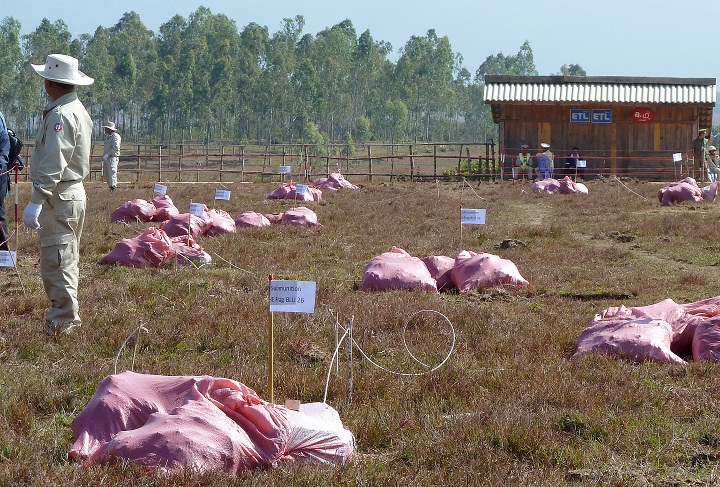OTTAWA – Officials from Foreign Affairs and the Defence Department defended a loophole Thursday in a much-maligned bill that would ratify Canada’s participation in the international treaty to ban deadly cluster bombs.

The officials told the House of Commons foreign affairs committee that the so-called interoperability clause is necessary to allow Canada to participate in joint operations with countries that are not signatories to the Convention on Cluster Munitions – namely the United States, which has opted out of the treaty.
The clause has opened Canada to widespread criticism from across the globe, including the normally neutral International Committee of the Red Cross.
Brig.-Gen. Charles Lamarre, operations director for the Canadian Forces Strategic Joint Staff, said the contentious clause prevents Canadian soldiers or commanders in joint operations from being criminally prosecuted for decisions they make in the heat of battle.
Lamarre also said the chief of defence staff has issued a directive that cluster bombs not be used. But he couldn’t rule out their use by an ally in a joint operation, particularly the U.S., that involved Canadian military personnel.
Canada enjoys a unique military relationship with the U.S. that gives its senior commanders privileged access to high-level exchange programs.
“It is important to note that we have never used cluster munitions in any of our Canadian Armed Forces led operations, and we are in the process of destroying our remaining stockpiles,” Lamarre said.
The government’s bill, he added, allows Canada “to meet our broader defence needs, to remain a strong and reliable ally, and to continue to contribute meaningfully on the international stage.”
- What is a halal mortgage? How interest-free home financing works in Canada
- Ontario doctors offer solutions to help address shortage of family physicians
- Capital gains changes are ‘really fair,’ Freeland says, as doctors cry foul
- LGBTQ2 rallies will be held across Canada next month. Here’s what to know
Sabine Nolke, a senior Foreign Affairs official on non-proliferation, described the issue as the most difficult aspect of the treaty negotiations.
Canada signed the convention in 2008 but has yet to ratify the treaty, a delay that has also sparked international criticism.
The government’s position was met with skepticism by opposition MPs on the committee.
Liberal foreign affairs critic Marc Garneau said the Canadian position was akin to being “half pregnant.”
NDP critic Helene Laverdiere noted that a similar arms treaty – the Ottawa Convention that banned the use of anti-personnel mines in the late 1990s – has no such interoperability clause. She said that hasn’t prevented Canada from participating in joint operations with the U.S.
Cluster munitions have proven especially dangerous to civilians, especially young children, in dozens of countries. They continue to kill and maim civilians decades after they are used because a single cluster bomb, which contains hundreds of smaller, baseball-sized explosives can lie unexploded until it is disturbed.
In many respects, they are a remnant of the Cold War, designed to inflict maximum damage on a large armies such as the much-feared advance of the Soviet Union’s land forces, which never materialized.
“At one point we thought it was a good idea,” Lamarre responded, when asked why Canada ever purchased them.
“During the Cold War, it wasn’t as if we were lobbing a lot of things.”
The committee was told that the Forces have taken the weapons out of circulation and are in the process of trying to destroy them.



Comments